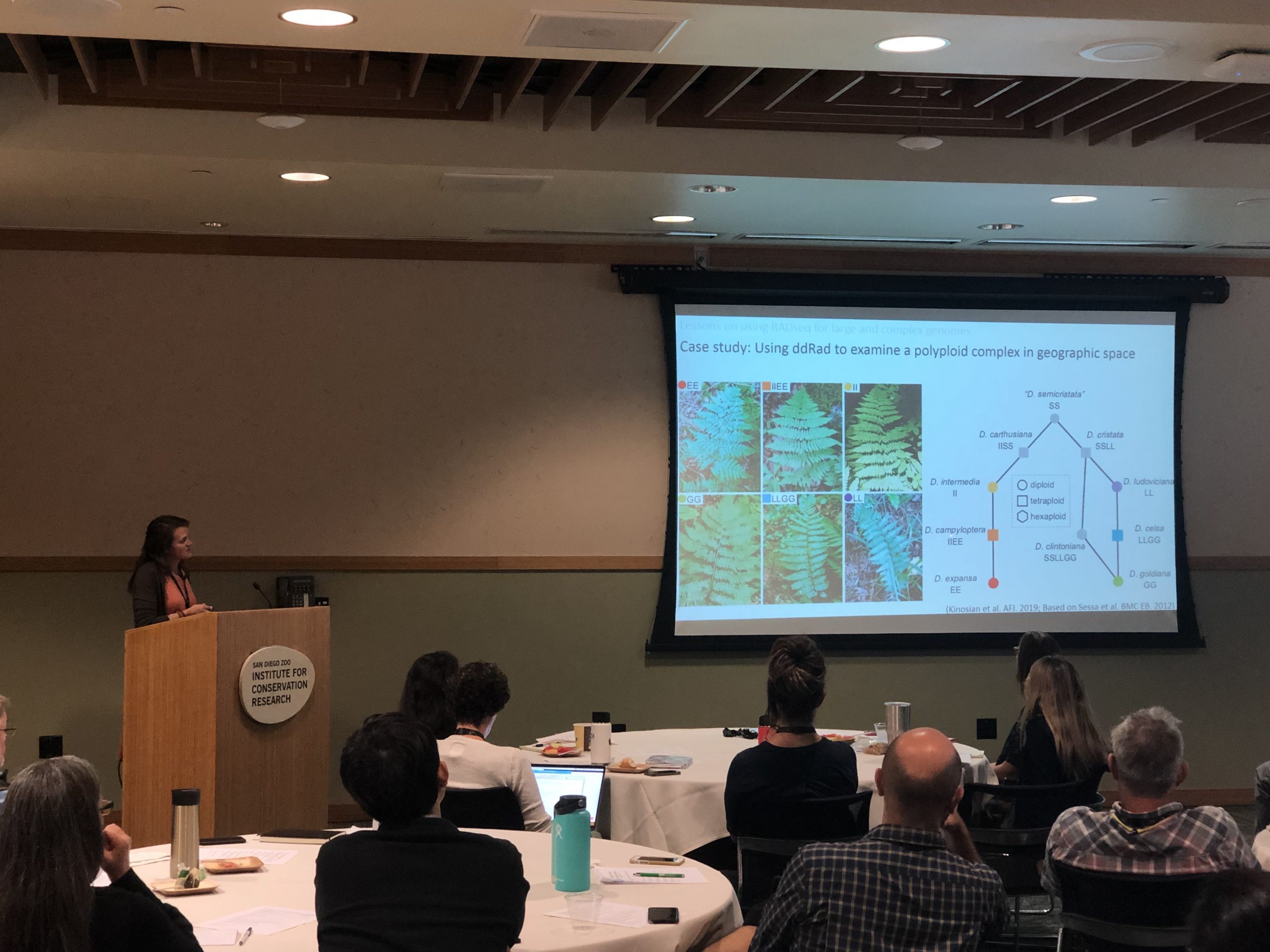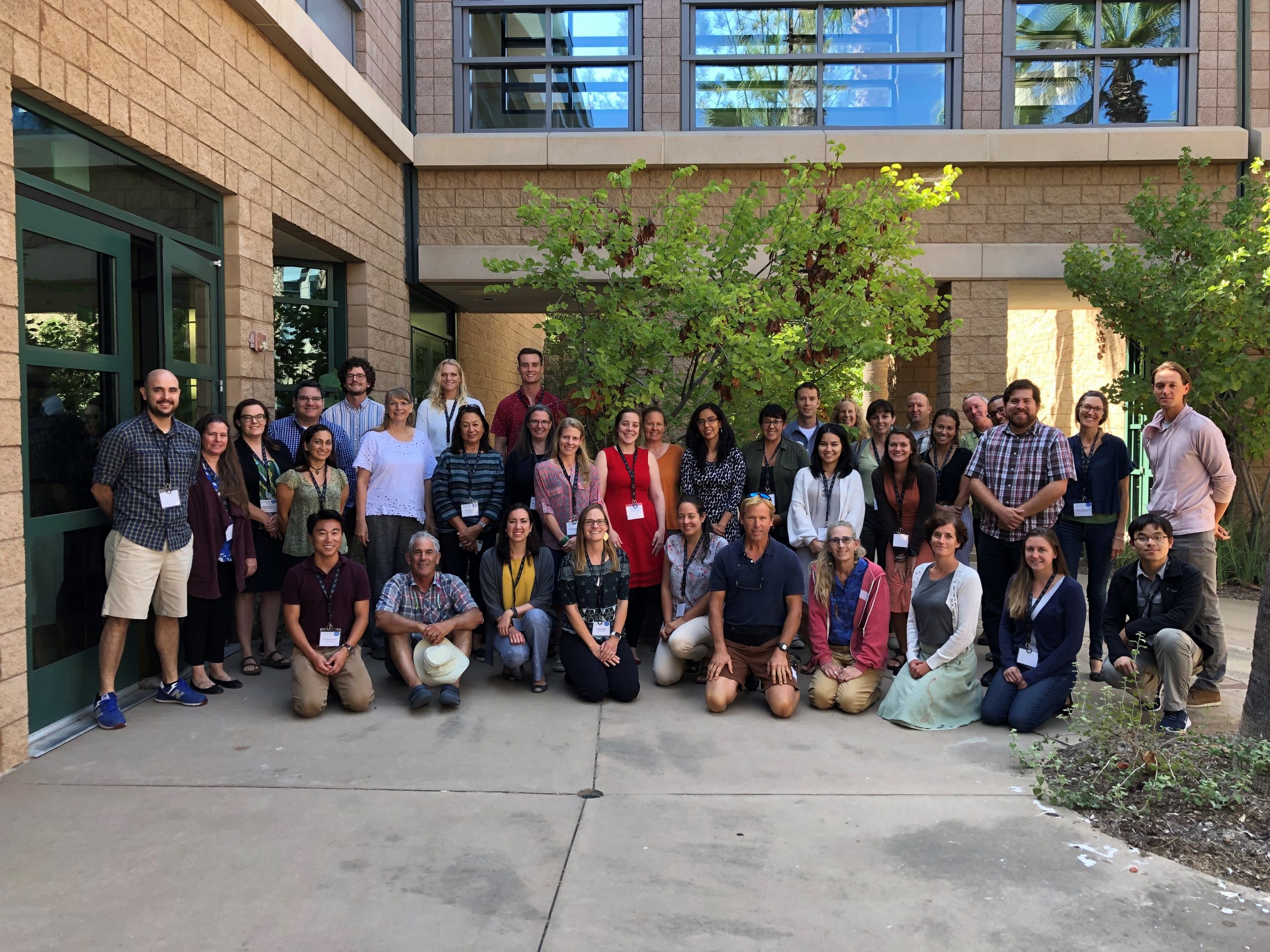Plant Genetics Workshop – Wielding a Powerful Tool
In the field of systematics, genetic analyses have become a powerful tool to help understand where to appropriately draw lines between species, how genes flow between populations or even species, and how different taxa are related. Last month, San Diego Zoo Global brought together a variety of researchers for a two-day Plant Conservation Genetics Workshop.
In the field of systematics, genetic analyses have become a powerful tool to help understand where to appropriately draw lines between species, how genes flow between populations or even species, and how different taxa are related. Last month, San Diego Zoo Global brought together a variety of researchers for a two-day Plant Conservation Genetics Workshop. The workshop attendees addressed many issues associated and provided many experiences, though there was a focus on methodologies, particularly related to restriction site associated DNA sequencing (RAD-seq), which is a method that can provide comparisons of up to thousands of points within a long sequence of DNA. Many CPC Participating Institutions participated in the workshop, sharing their experiences using genetic techniques to better understand species relationships.
Sally Chambers, Ph.D., of Marie Selby Botanical Gardens presented her work using double-digest RAD-seq (using two enzymes to digest DNA rather than one, allowing for more control of digestion sites) in her attempt to resolve relationships within a group of North American ferns. The technique has its limits with large or complex genomes (of which ferns have both), and the project hit some barriers. For instance, some known relationships among hybrids were not appearing in the sequencing data. But in understanding some of the problems with the technique, Sally’s experience can inform others working with species with complex genomes.
From Denver Botanic Gardens, Jennifer Ramp-Neale, Ph.D., showcased a few of the many conservation projects that the Gardens undertake. Combining genetics work with demographic monitoring, niche modelling, and morphology studies, they were able to learn more about the rare Colorado hookless cactus (Sclerocactus glaucus) – including that it was not significantly hybridizing with its more common, hooked brethren – and allowing them to better refine the geographic boundary. Their integrated approach helps provide a broader context to land managers helping to conserve this species and enforcing policies to protect it.
A prime example of the importance of describing and naming species for conservation, Alex Lignan, Ph.D., from Missouri Botanical Garden shared his work on species of ebony (Diospyros) endemic to Madagascar. Naming a species helps provide legal protections to protect against logging within the group of trees.
Of course, genetic analyses have power beyond informing systematic studies. UC Botanic Garden’s Vanessa Handley, Ph.D., unveiled their plans to conserve the genetic diversity of an important ex situ cycad collection and the genetic research aiding that effort. San Diego Zoo Global’s Stephanie Steele, Ph.D., discussed her efforts to understand the role of genetics in bark beetle and drought resistance in Torrey pines, and the potential management issues the genetic information can provide.
The power of genetics analyses to contribute to systematics as well as issues of management and for genetic rescue is clear. The unique challenges presented by plants, many of which have complex genomes or issues of polyploidy (having more than two paired sets of chromosomes), are still being worked through and are being met head on; and the more we learn about and share the methods, the more powerful the tools will become.

